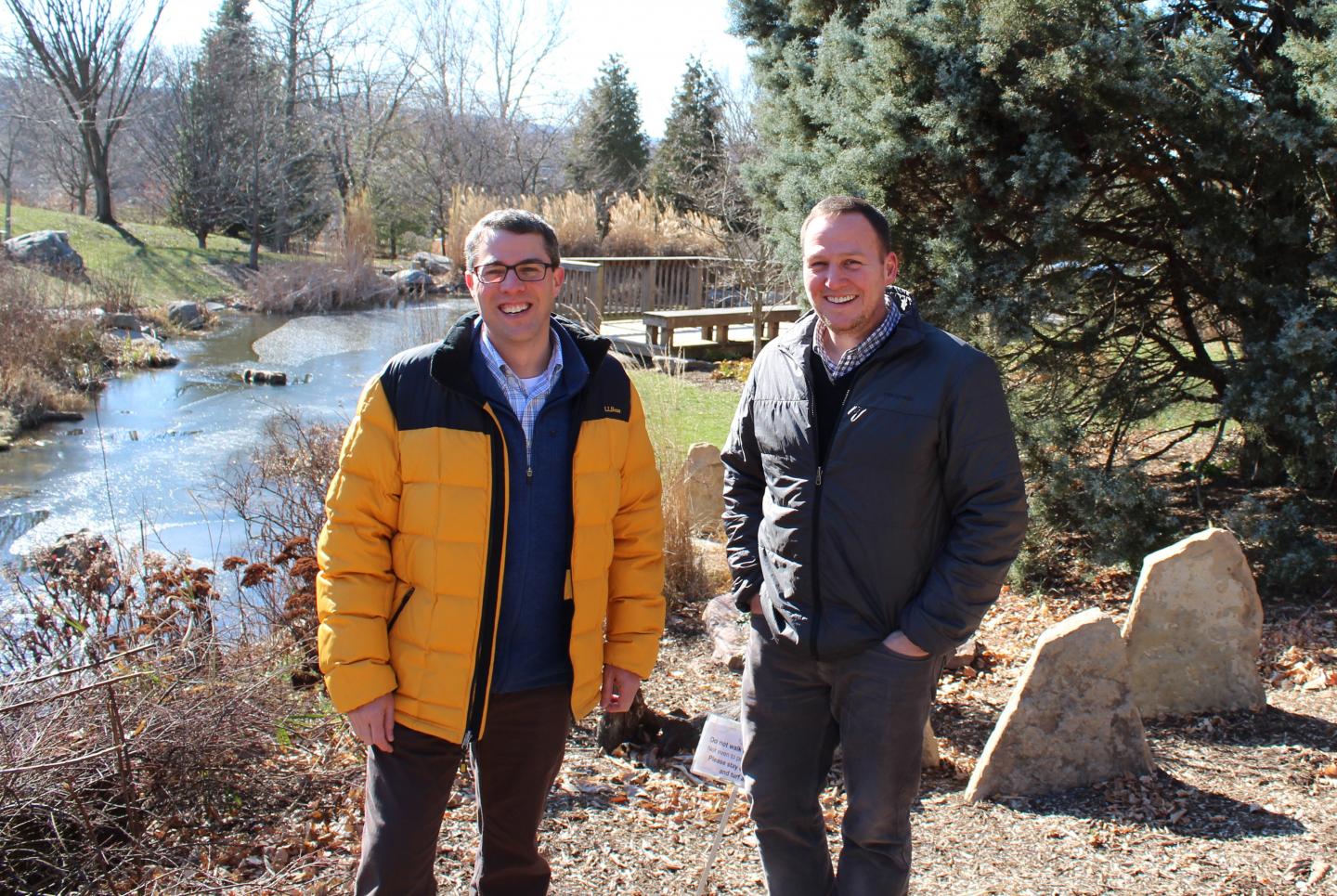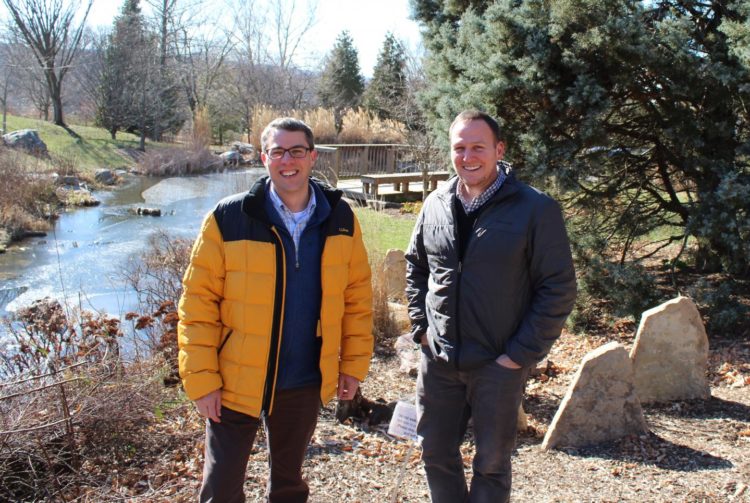
Credit: Virginia Tech
Forest systems, a crucial resource for fresh water around the world, are under increasing pressure from global change factors like climate change, population growth, and land management decisions. To meet future demands for clean water, scientists need a clear understanding of the dynamics of water and nutrients in forest systems.
To broaden understanding of those systems, two faculty members in Virginia Tech’s College of Natural Resources and Environment are partnering with the New Zealand government-owned research entity Scion. They are undertaking an ambitious collaborative project that will utilize remote sensing technology, isotopic tracing, and manipulative field studies to develop a comprehensive model of water and nutrient flow through forested watersheds and streams.
“One of the big questions facing New Zealand is how climate change drivers and land use changes are going to affect ecosystem services,” explained Associate Professor Brian Strahm, of the Department of Forest Resources and Environmental Conservation. “There is a lot of uncertainty about what the future will look like. The broad purpose of this grant is to try to reduce some of that uncertainty and give the people of New Zealand confidence in their land use choices going forward.”
The five-year research project, called Forest Flows, will develop forest hydrology models to measure and predict the storage and release of water in forest catchments while simultaneously allowing scientists to collect data on nutrient cycling, with a particular emphasis on the export, utilization, and cycling of nitrogen.
“A major goal is to disentangle the soil and hydrologic processes controlling nutrient cycling and export from forested watersheds,” said Associate Professor Kevin McGuire, also of the Department of Forest Resources and Environmental Conservation and associate director of the Virginia Water Resources Research Center. “You can’t really look at the cycling of nitrogen at the watershed level without understanding how it’s transported and reacts within soil.”
To explore that question, researchers will use isotopic “tracers” in the water and in nitrogen to measure the movement of water and nutrients through a forest system.
“We’ll be using stable isotopes to track the movement of water and nitrogen through these systems,” Strahm said. “It’s a little like putting a flag or a tracker on a molecule of water or an atom of nitrogen and seeing where it goes through the environment.”
This research will build on their recent study published in the journal Water Resources Research that modeled hillslope water flow to estimate how natural systems behave in response to land use or climate changes. The research was carried out at the U.S. Forest Service’s Coweeta Hydrological Lab in North Carolina.
“The hillslope study is what got us in the ballgame with Scion,” Strahm said. “Our experimental hillslope is tightly controlled, which allows us to do very specific manipulations of precipitation. We can basically make our own rain or alter nitrogen availability in that system. Scion would like us to build on that kind of work, adjusting those experimental variables so that they are relevant to the future of New Zealand.”
Recognized as a global leader in forest hydrological research in the 1970s and 1980s, New Zealand has experienced a significant land use shift from forestry to cattle and dairy. As a result of that shift, and as climate change threatens more periods of flooding and drought, there is increasing attention on the ways that land management decisions will impact water quality in the future.
“New Zealand wants to understand this challenge at the scale of their nation, so that they can better understand how independent land management decisions will scale up to impact water quality moving ahead,” Strahm said. “They want to be prepared to deal with future climate change drivers and make sure that their land use decisions are compatible with their social and cultural values.”
While the project is focused on the unique challenges of New Zealand forest watersheds, both professors, who are affiliated faculty members of the Global Change Center housed under Virginia Tech’s Fralin Life Sciences Institute, noted that this research has both local and global implications.
“The issues we’re looking at in New Zealand are applicable anywhere,” McGuire said. “Here in Virginia, most of our drinking water originates in forested watersheds. What happens in those forests and how water is used has huge implications for water quality and availability.”
The project’s total grant amount of approximately $9 million (NZ$13,736,775) is funded to Scion by the New Zealand Ministry of Business, Innovation, and Employment. Virginia Tech’s subcontract from Scion will include support for a student researcher to participate in the project.
###
Media Contact
Krista Timney
[email protected]
540-231-6157
Original Source
https:/





